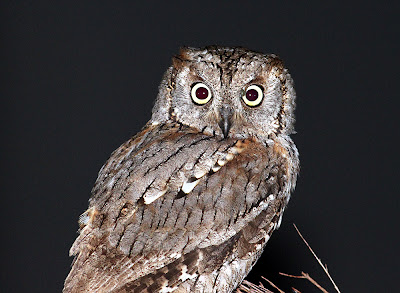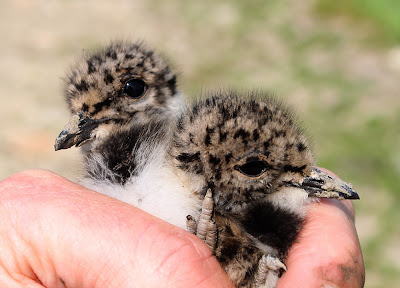I got to Pilling this morning for a few hours, and here’s a summary of birds noted: Pairs of Tufted Duck, Little Grebe, Reed Bunting and Kestrel, the latter at Damside where I noted a Buzzard thermalling over the village. Lane Ends plantation: singing Blackcap, Willow Warbler and Reed Warbler plus 2 villainous Jays doing the rounds.
At Pilling Water/Fluke Hall I struggled to make headway with the 8/10 Skylark pairs, the only ones feeding young were in a rather dense silage crop which the farmer won’t thank me for flattening. Two pairs of Redshank with unseen young, likewise one pair of Oystercatcher and a few unringed Lapwing chicks on the too-public wildfowler’s pool. Otherwise, 1 Greenfinch, 5 Linnet, 2 Goldfinch, 1 Pied Wagtail and 1 Grey Heron.
That’s not too much reward as spring disappears into June, and it’s nearly time to hang up the bins for a couple of months - just joking.
So to fill out the remainder of the post here’s a few pictures of Scops Owl from this year’s Menorca.
Just like in previous years a pair of resident Scops Owls visited the grounds of our hotel to hunt for moths and insects every evening. Some evenings the owls were more visible than others, but always announced they were due to arrive by soft calling about 9pm from their roost site in trees across the road. Louder calling indicated the pair warming up for a feed and were on their way, with the first bird usually landing by the room balcony or in a nearby palm tree about 2130. One evening as I sat with camera ready one of the pair landed so close I couldn’t get a full frame shot and by the time I slid the chair backwards the owl had flown to another vantage point.
Scops Owl
Scops Owls are widespread across Europe with most of the population migratory, however those on the Balearic Islands including Menorca are thought to be mainly non-migratory. The Balearic race Otus scops mallorcae is also said to be slightly smaller than other races, with less bulk and a smaller wing length, the latter probably as a result of becoming less migratory over many, many years: mallorcae is also said to show less colour variation than the more widespread nominate race. Without direct comparison this is difficult to judge from the pictures here, more so as the photographs were taken under different light conditions then later subjected to removing red-eye and other alteration through Photoshop.
Scops Owl
Some evenings and in between flitting between various hunting perches, the pair mated at the top of the garden canopies. At other times they flew back and forth to their nest site, but all the time their calling to each other was constant and often a means of telling how far away they had moved to hunt. Scops Owls have a very direct, fast unwavering flight, quite unlike the undulating flight of the 10% larger Little Owl.
Scops Owl
On one or two evenings there were three birds, and while the pair could by early May have bred successfully, I thought it more likely an intruder was about. I was getting stupendous views of the owls so never even looked for their daytime roost somewhere in the grounds of holiday villas nearby. I didn’t hear this pair call in the daytime but occasionally when out walking in Menorca it is possible to hear a Scops calling from a piece of dense woodland. Best not to worry, just set the alarm clock for 9pm every evening, camera in one hand glass of wine in the other. Now that's what I call birding.















































































